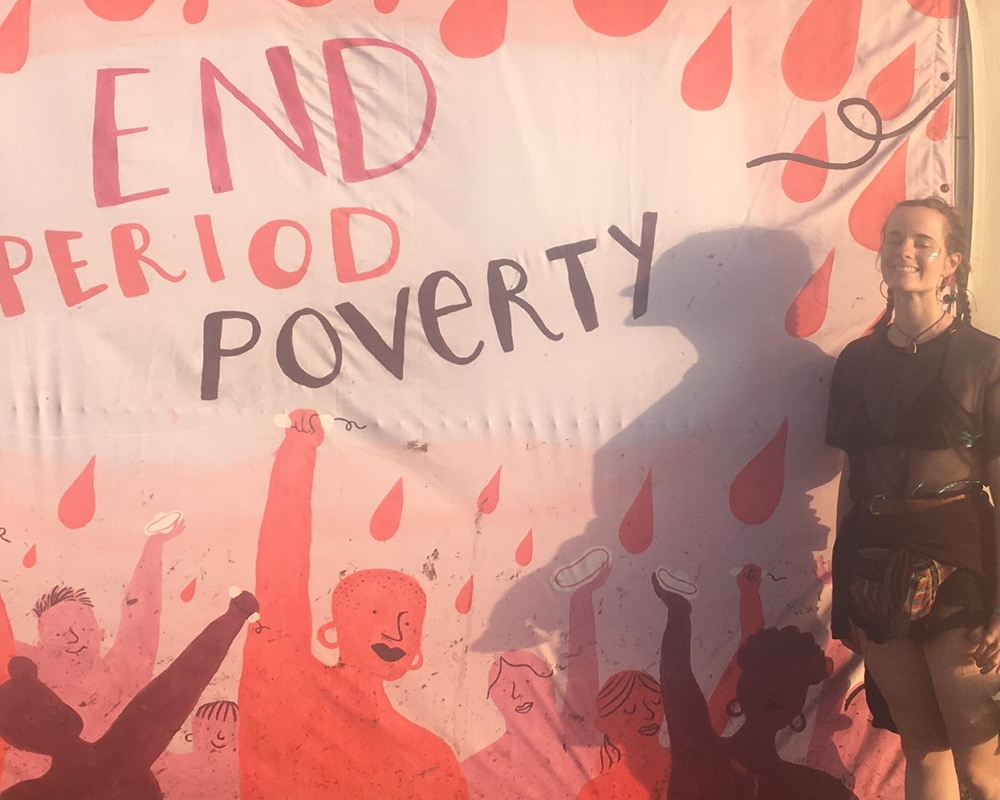
Sophie’s Story
In 2020 along with a team of agents of change from Irise’s Advocacy Network, I will be undertaking a 6 day climb in Uganda’s “Mountains of the Moon” as part of the Empower Period campaign. The aim of the trek is to raise funds and awareness in support of the campaign’s mission to transform the menstrual cycle from a cycle of shame, to a cycle of empowerment.
Menstruation as a cycle of shame: My Experience
When I started my period during my first week of secondary school, I already knew to expect it. In primary school sex education class we had covered the basic biology of menstruation and a friend who had already started her period had given me some insights into the experiential elements. I remember her explaining that when wearing a sanitary towel she could feel the blood flow when she stood up, and stop when she sat down. Comparatively, research shows that 14% of girls in the UK don’t know what’s happening to them when they start their period.
Despite my existing, albeit partial knowledge of what periods involved, starting my period was a difficult experience. This is because at the age of 11 I already understood that periods were taboo; my period was already equated in my mind with uncleanliness and secrecy. Although its difficult to trace exactly where this came from, its effects were evident in my own response to menarche: I hid my blood-stained pants before working up the courage to tell my mum and confided in a whisper to an older friend but begged her not to tell anyone else. The period taboo pervaded my teenage years; despite having heavy periods I often avoided changing my sanitary pad at school. I was anxious that other pupils would hear me peeling off the backsheet of my sanitary pad in the toilet, thereby “exposing my menstrual status” (see PhD student Hannah Robinson’s fantastic work). Inevitably, this sometimes led to leaks and even more embarrassment.
Menstruation as a cycle of empowerment: My Experience
In the UK, 1 in 5 girls have been bullied because of their period, and 1 in 10 can’t afford products. I was privileged to experience neither of these things. However I did get made fun of for continuing to use sanitary towels when many of my friends had moved on to tampons. At the time it seemed to me that tampons were a signifier of maturity and I was left behind. I hadn’t made the move to tampons because despite countless attempts, I was unable to insert them. I later found out this was because I had vaginismus; a pelvic floor condition that causes muscle contraction and pain in response to attempted penetration, and which can be caused by problematic myths about women’s bodies. My inability to have choice in menstrual materials prevented me from doing certain activities whilst on my period such as swimming with my friends, it made me feel “abnormal” and ultimately disempowered.
Fast forward to 2017, I came across Irise International in an online search for Sheffield based charities working on gender inequality. I immediately got in touch, and soon started on Irise’s Agents of Change training programme. In small group sessions led by Irise’s fantastic CEO, I learnt about the myriad ways in which periods limit women and girls all over the world from achieving their potential. Equipped with the skills acquired during these sessions, I launched my own fundraising campaign and subsequently was appointed as Irise’s first Advocacy Trustee. In joining the Irise community, I found a safe space in which to challenge my own internalised menstrual stigma, to the point where I can now say I am proud of my period. I believe all young people deserve a similar safe space to explore and understand their periods, and this is one of the key aims of the Empower Period campaign.
Empowering Periods for all
Tackling menstrual related disadvantage must begin with ending menstrual stigma and shame and this must be a collective effort. Important research by Irise Advocacy Committee member, Lizzie Goolden, has shown how women and girls from both high and low income countries report striking similarities in how they experience period taboos. This demonstrates that menstrual stigma is a far-reaching, global issue. However, it also gives us the opportunity to understand period shame as a shared experience, and therefore as ripe for collective action. This is why Irise’s Advocacy Network are launching our Empower Period campaign; we believe that if menstruators and menstrual allies come together, we can transform period shame into period positivity, catalysing a shift towards achieving wider gender equity.
Periods are currently receiving a (relatively) significant amount of media attention; through the Empower Period campaign we intend to take this moment, and transform it into a long lasting movement for change. Let’s be the generation to end period shame once and for all.



No Comments